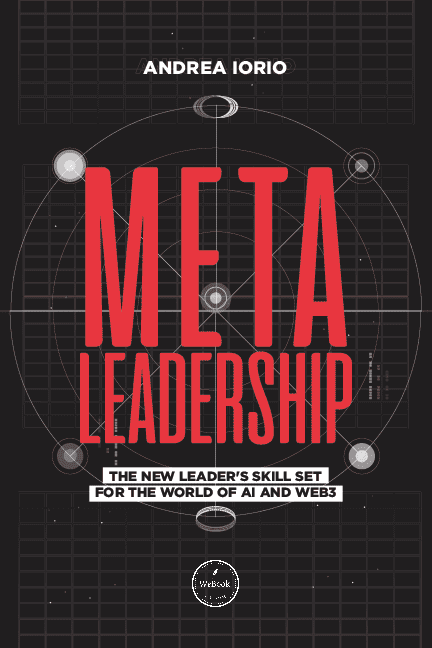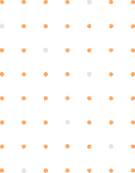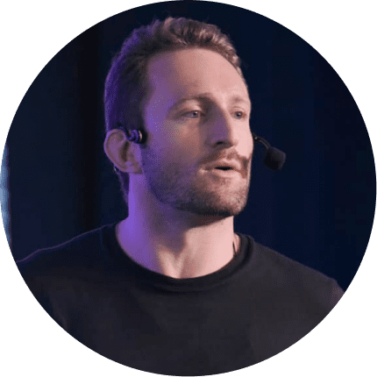I recently enrolled in a speaker training program here in the United States, called Impact Eleven. It was created by Ryan Estis, a well-known speaker in the United States, with whom I was fortunate enough to share the stage at the John Deere convention in Miami in 2022. He told me about the training program, and I went to learn more about it online. What caught my attention the most was a claim on their website, which was: "By selling your first speech, you will recover your investment." And worse, I thought: "It's true!" After all, the course wasn't cheap, but speeches are also very well paid - which convinced me to enroll in the program.
You know what's most interesting? That the same thing wouldn't have happened with a math course, or many of the other subjects we study in school. At that moment, I understood that there are a series of new competencies, in the digital age, that allow us to monetize more clearly than traditional skills, which are taught in school or in the workplace.
To explain better, and also to explain that I am not undermining traditional education, but rather pointing to a new complementary range of skills - which I like to call Real Skills, which I differentiate from Hard Skills (which are just technical knowledge) - that will help us develop "solo" careers.
Luis von Ahn is an entrepreneur and computer scientist from Guatemala known for his pioneering work in crowdsourcing and gamification. Born in 1979, he is often cited as one of the creators of CAPTCHA, you know those distorted text images used on websites to verify if the user is really human? Von Ahn is a prodigy in the field of computer science, having completed his PhD at Carnegie Mellon University (CMU) where he also helped develop ReCAPTCHA, an advancement of the original CAPTCHA that not only prevented spam, but also digitized books and newspapers. ReCAPTCHA was so successful that it was acquired by Google in 2009.
In addition to his work with CAPTCHAs, Luis von Ahn is equally known as the co-founder of Duolingo, an extremely popular language learning platform that uses gamification principles to make language learning more effective and enjoyable. Duolingo is worth over $3 billion and has more than 575 million users. The interesting thing is how and why this company was born. See what Luis Von Ahn tells us in this next sentence:
"So, I decided that we're going to start by teaching something. And then I started thinking: Okay, what should I teach first? Should we teach mathematics? I mean, we both love math. My co-founder and I both love math. And, you know, we both decided not to teach math. So, we started thinking, maybe we should teach computer science. But eventually, and this may be surprising to most people in the United States, we eventually decided that the best subject to start with was teaching foreign languages. And let me tell you why. There are several reasons, and one of them is because there's a large audience for it. There are about 2 billion people in the world learning a foreign language, both in school and outside of it. Most of these people, by the way, are learning English. About 80% of them are learning English. In this strange map here, the green areas are areas where people are predominantly learning English. And the reason for this is that English can really transform your life: in most countries around the world, knowing English can significantly increase your earning potential. So, this is another reason why we decided to start with foreign languages, and it's because you can directly earn more money by learning another language, particularly English. And you see, this is quite different from many other subjects."
To start, let's compare language study, for example, with studying mathematics. Just knowing mathematics doesn't increase your earning potential, because you generally need to learn mathematics, then physics, to become a civil engineer (that's where you make more money). With languages, if you're a waiter and you learn English, now you can be a waiter in a hotel and earn more money.
If you learn to code (which somehow works similarly to languages), you can develop software related to your field (imagine you're a doctor, historian, or lawyer), and resell it, becoming an entrepreneur.
Now, I know at first you might think: "But Andrea, isn't it true that math is important, it does guarantee me a job?" You can be a mathematician, a teacher, work in a financial company, at a bank, do a lot of things. Okay, that's clear, and I'm not saying that these skills aren't important and don't bring purchasing power - what I mean is that they don't bring a direct and short-term correlation with a significant increase in income - just marginal.
Let me explain better, and to do that we have to start by comparing the situation between being an employee and being an entrepreneur. Let's start with the situation where you are an employee and work for a company and someone else: obviously, these technical skills (which here we'll call Hard Skills), like knowledge of mathematics, or grammar, or history, have been important for you to have gotten this job - certainly your area of expertise (like in my case, economics), helps us get a job in this field. But once we're in this job, our chances of significantly increasing our income are few: after all, salary adjustments or promotions are sporadic, and even then they are marginal in their increase. Not even bonuses will make a huge difference, and it's once a year. What I mean, and I hope not to be misunderstood, is that this type of situation allows for a stable life, but it won't lead us to considerable increases in wealth and income, as this growth has a ceiling.
Where do we have this unlimited possibility of growth? Obviously, by being "owners" of companies, or part of them - that is, by being entrepreneurs.
However, traditionally entrepreneurship is seen as a condition 100% separate from having a job, that is, if you work for someone else you can't also be an entrepreneur: it's one or the other.
But in the Digital world, doing both at the same time is possible - in fact, it's what most people do today, with a statistic from Zapier showing us that 70% of Gen Z has what in English is called a "side hustle," and which here I'll call a "solo" activity. Why "solo" activity? Because it refers to solo entrepreneurship, with more and more people monetizing themselves without the need for large teams - which is a bit what I do as a speaker.
Let me share some statistics to convey the magnitude of the phenomenon today:
- 34% or one in three Americans have a solo activity;
Those who have a side job and dedicate 12 hours a week to their business earn an average of $1,122 per month;
Almost 50% of people with a side job do it because they want to, not because of financial constraints (this is extremely interesting);
At the same time, one-third keep a side job because they need to supplement their income.
32% of people with a side job dedicate only 5-10 hours per week to it.
50% of millennials have a side job.
70% of Gen Z has a side job.
The side job market in the US is valued at over $2.58 trillion.
83% of Americans will perform freelance work by 2027.
Three-quarters of people love their side job (and I add, more than their full-time job).
Many of these "solo" jobs gradually become main activities. Look a little at my trajectory with this: while I was Chief Digital Officer at L'Oréal, I started giving speeches in parallel and supplementing my income (to the point that it grew so much that it exceeded my executive salary: that's when I quit my job and dedicated myself mainly to speeches), and also started putting my apartment on Airbnb while I traveled. Note that these activities can grow - to the point that today, as I mainly dedicate myself to speeches, about 10% of my income comes from managing Airbnb for my apartment in Rio de Janeiro - which by the way is a good deal. Another 10% of income this year comes from a new project I launched, called "Art of Speaking," where I train professionals and executives to become professional speakers - a project that worked out and that I intend to scale.
I also see my wife: she interns at a Podcast company in NY, but in parallel has one of the most well-known crime podcasts (called "Real Cases"), with which she does campaigns for brands, and also monetizes through a luxury handbag thrift store she created.
It's amazing how in the Digital world you can supplement income, or even dedicate 100% to "solo" activities, as in my case - becoming a "solopreneur." And I guarantee: earning much more than any contracted job could.
Let's see what some of the most successful solo activities are? Obviously, digital influencer, creating audiences and communities and monetizing them (from Instagram to OnlyFans, from YouTube channels, podcasts, and even blogs) - this is the most obvious. But there are others, such as renting out your Airbnb, or creating a store on a marketplace, doing dropshipping, driving Uber, doing delivery, or even, as here in the United States where I guarantee it's one of the best jobs you can do, being a dog sitter.
It's impressive how the Digital world has allowed the emergence of all these new activities, which I call activities and not jobs because this is quite different from a job - they are more new sources of income than anything else.
But where do I want to get with all this discussion? I want to get to the central point of this episode, which is that for these "solo" activities you need new skills and knowledge that neither Soft Skills nor Hard Skills provide: that's why we need to understand what Real Skills are, and what their characteristics are (1 - quick to learn, 2 - based on a mix of theory and practice; 3 - direct correlation to more than marginal income increase).
Let's break it down and let's start by differentiating between Soft Skills, Hard Skills, and this new category, which I'll call Real Skills.
Let's start with Soft Skills: today we won't focus much on Soft Skills, as the big comparison we'll make today is between Hard Skills and Real Skills. It's pointless to say that Soft Skills are extremely important and their characteristics are intangible, difficult to measure, and difficult to develop. Examples include collaboration, empathy, critical thinking, and so on. Again, the fact that they are so intangible generates a problem: that it's almost impossible today to tie the development of a Soft Skill to a significant increase in income.
Talking about Hard Skills, here we come to this category we mentioned earlier: technical knowledge of mathematics; even languages, even though we talked about the difference between studying mathematics and English, they are part of Hard Skills. Even manual skills like firefighting, electrician, carpentry, and so on, represent a Hard Skill. They are indeed tied to income increases, but they lead to a path of specialization (after all, the choice of which of these Skills you will decide to deepen will define what you will do in life and your profession, most of the time) and are more time-consuming to learn and develop (think about how many years of school you learn mathematics, and so on, or even cooking... it's years!). And also, in the end, they are also more predominantly focused on theoretical learning: practice comes when you perform the profession.
Here we come to the third category that I propose: these are Real Skills that allow you to launch a "solo" activity in the short term. Again, examples such as "learning to become a speaker"; "learning to edit a video on your phone"; "learning to manage communities"; "managing an Airbnb"; and so on... these are very specific knowledge that have the mentioned characteristics:
1 - Quick to learn: because they are very niche and specific, some of these Real Skills don't need much formal learning - but as in the case of my mentoring to become a professional speaker, it can be learned in 4 weeks. This is also due to the fact that in the Digital world learning through microlearning and asynchronous content is increasingly predominant, and shortens learning timelines.
2 - Based on a mix of theory and practice: again, because they are very niche and specific, they don't have as much theory but rather learning is very practical as well.
3 - Direct correlation to more than marginal income increase: here's the important point, that these professions can monetize very quickly and concretely.
In general, we need to understand very well what competencies and knowledge we want to prioritize in our evolution journey, because each of them can fit into different categories - and each will have a different impact on our career. Attention: at no time did I mean that Soft Skills and Hard Skills are not important or less important than Real Skills, but that as we want to be part of the new economy, there is a new category of competencies that is not taught neither in schools nor in companies, but that are fundamental to accelerate our "solo" career!"









